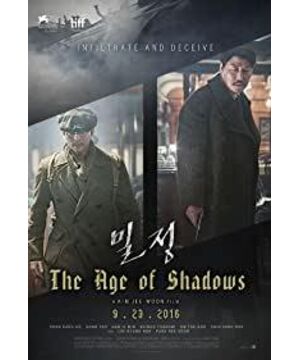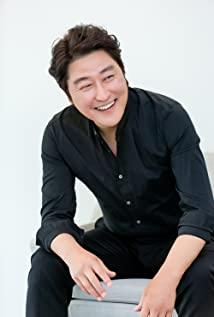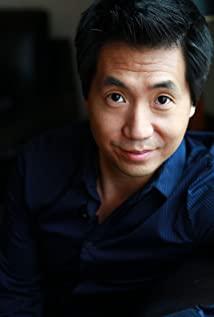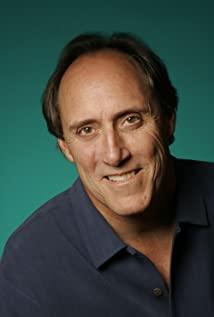"The Secret Agent" is a Korean version of the anti-Japanese film. It lacks some Chinese anti-Japanese sentiments. The audience can more separate from their own national feelings and appreciate the film from an objective perspective. I like this film for three reasons:
First, although the characters in the story are ordinary, they are outstanding. Uncle Kong played the antique merchant, Song Kanghao played the Japanese soldier, and other anti-Japanese teammates who didn’t remember their names after watching them, such as the only female member of the anti-Japanese group, the dog thief who betrayed the anti-Japanese group, the leader behind the anti-Japanese group, etc. Wait, the image of each individual is very ordinary and vivid. This group of young people's methods and strategies for resisting the Japanese are not clever. It is precisely because of their clumsy actions that the audience feels the hatred of ordinary people towards the Japanese and their resistance to them.
Second, the film music is well selected. In the latter part of the Japanese military party, the yo-yo tune of the background music is the opposite of the tune of the whole serious film, which is very meaningful. It's just like when the enemy is in front of you, you're obviously a soldier, but you light a cigarette, pick up a vinyl record, and play Ono Lisa's jazz music, which is abrupt and appropriate. It's wonderful. The Japanese army commander looked so cool when he saw Song Kanghao and the letter. The light and soft background music seemed to mock his incompetence and failure, again, very wonderful.
Finally, the reason why I like this movie is because of the existence of my new Huan Kong Uncle. I’m not partial, but I have to say that Uncle Kong’s acting skills are really good, and he is indeed a few levels higher than ordinary Korean male stars. When chatting with Song Kanghao in the antique store, he explained the intriguing mood and deceit. On the train, he was cautious to avoid the Japanese army's wiping off the shit and urine for the little kid. After getting off the train, he saw the heroine being taken away by the Japanese army. Uncle Kong looked back and gave a meaningful smile when Song Kanghao left the court. Knowing in the prison that the explosives had successfully detonated the gratifying smile... These various emotions, Uncle Kong, played very well in the scene, and deserved to be admired.
Although this movie did not give people the feeling that after watching it: "Wow! This is really a wonderful big production!" It is a relatively short piece for me, but it is not a pure waste. The movie of time, after all, has a historical background, and the subject matter is more serious, but in general, I think it is a good Korean movie.
The era of Hong Kong-produced films is over. In Cantonese, domestic films are still "not to the throat or to the lungs", and the subject matter is boring and low-level. Looking toward the current trend, the potential of the Korean film industry is indeed unlimited.
View more about The Age of Shadows reviews











